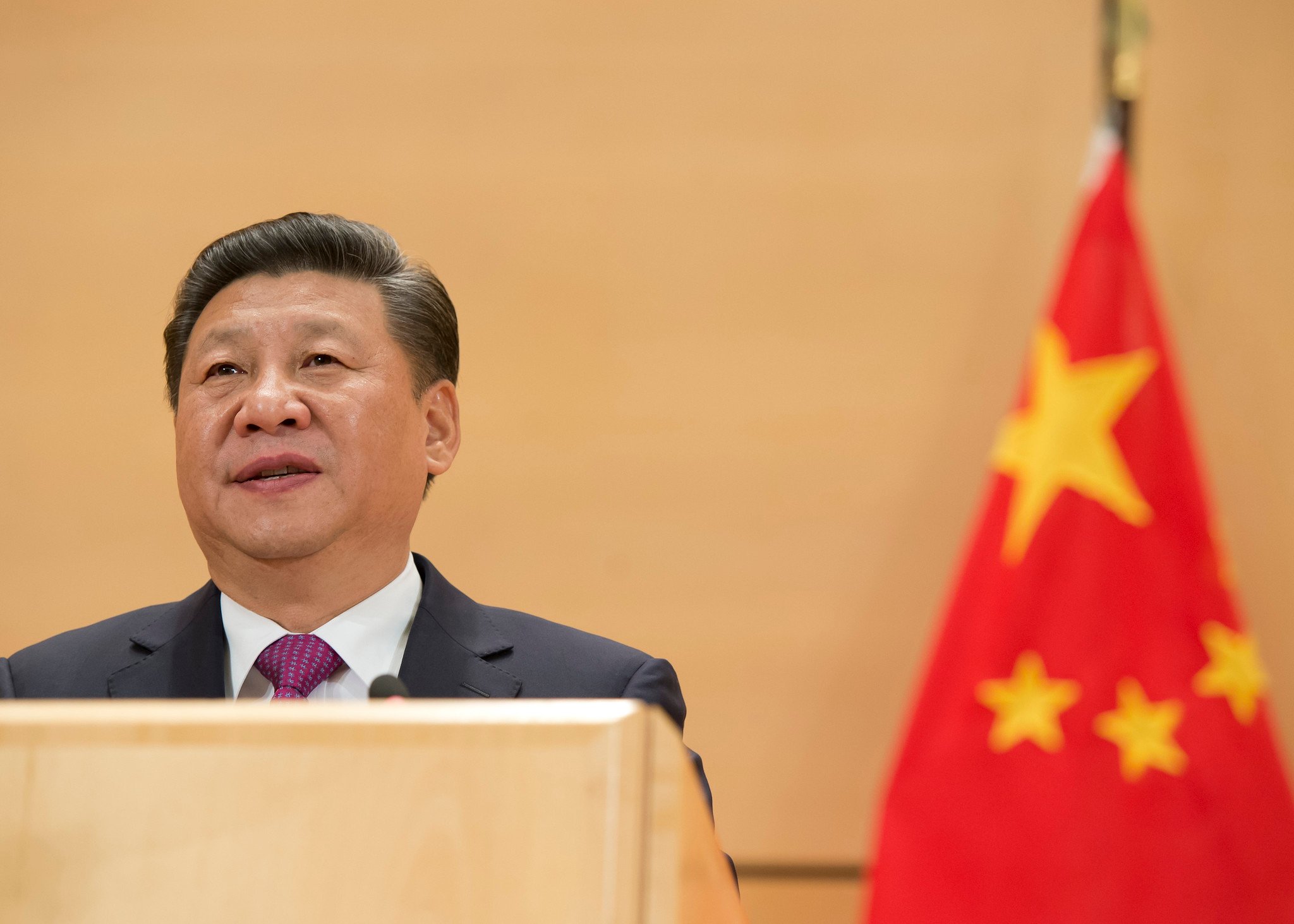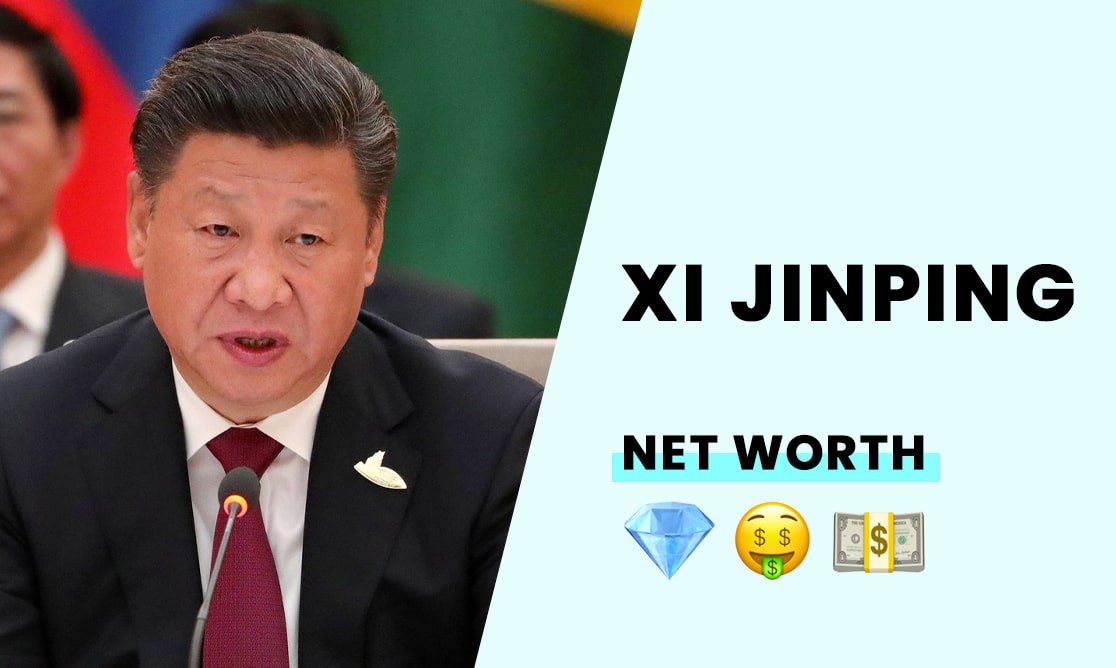Xi Jinping Net Worth: Insights Into The Financial Life Of China's Leader
Xi Jinping, the General Secretary of the Communist Party of China and the President of the People's Republic of China, is one of the most influential figures in the world today. Known for his strong leadership style and significant impact on China's policies, Xi's life and career are of great interest to many. One aspect that often piques curiosity is Xi Jinping's net worth. As the leader of a nation with a rapidly growing economy, understanding his financial standing offers insights into the wealth dynamics within China's political elite.
While the Chinese government strictly controls information related to the personal finances of its leaders, there have been various estimates and speculations surrounding Xi Jinping's net worth. These estimates often consider his personal holdings, as well as the wealth of his extended family, which reportedly includes substantial investments in various sectors. Despite the secrecy, understanding Xi Jinping's financial background provides a glimpse into the economic fabric of China's leadership.
In this article, we will delve into the biography of Xi Jinping, exploring his early life, rise to power, and the factors contributing to his wealth. We will also examine the political and economic influences that have shaped his financial trajectory. Through a comprehensive analysis, we aim to shed light on the intriguing subject of Xi Jinping's net worth and its implications for China's future.
Read also:Stefanie Martini Rising Star Of British Television And Film
Table of Contents
- Biography of Xi Jinping
- Early Life and Education
- Political Career: Rise to Power
- What is Xi Jinping's Personal Life Like?
- Factors Influencing Xi Jinping's Net Worth
- How is Wealth Distributed Among China's Elite?
- The Role of Family Wealth in Xi Jinping's Financial Standing
- Xi Jinping's Investments and Economic Interests
- How Does Political Influence Affect Xi Jinping's Wealth?
- Xi Jinping's Economic Policies and Their Impact
- A Global Perspective on Leadership and Wealth
- Controversies Surrounding Xi Jinping's Wealth
- Comparative Analysis: Xi Jinping vs. Other World Leaders
- What Does the Future Hold for Xi Jinping's Financial Status?
- Frequently Asked Questions
- Conclusion
Biography of Xi Jinping
Xi Jinping was born on June 15, 1953, in Beijing, China, into a prominent political family. His father, Xi Zhongxun, was a revolutionary veteran and a vice premier, which provided Xi with early exposure to the political landscape of China. Despite the privileges associated with his family's status, Xi's early years were marked by challenges, particularly during the Cultural Revolution when his father fell out of favor with the regime.
During his youth, Xi Jinping faced various hardships, including being sent to the countryside for re-education as part of the Cultural Revolution's policies. This period of adversity played a significant role in shaping his character and political ideology. It was in the countryside that Xi developed a strong connection with rural China, which later influenced his approach to governance.
| Full Name | Xi Jinping |
|---|---|
| Birthdate | June 15, 1953 |
| Birthplace | Beijing, China |
| Political Party | Communist Party of China |
| Education | Beijing Tsinghua University |
| Spouse | Peng Liyuan |
Early Life and Education
Xi Jinping's early life was a blend of privilege and struggle. Born into a family with a rich political legacy, he had access to educational opportunities that were rare for many during that era. However, the shifting political tides during the Cultural Revolution brought his family under scrutiny, and his father was purged from the Communist Party.
Despite these challenges, Xi managed to persevere. He attended Beijing Tsinghua University, where he studied chemical engineering. His education laid the groundwork for his future endeavors in politics, providing him with a technical understanding that complemented his political aspirations.
Political Career: Rise to Power
Xi Jinping's ascent in Chinese politics was marked by strategic positioning and an ability to navigate complex political environments. He began his political career in the Hebei province, gradually climbing the ranks through various administrative roles. Xi's leadership style and ability to connect with the grassroots earned him recognition within the Communist Party.
In 2007, Xi was appointed to the Politburo Standing Committee, the highest decision-making body in China. This position paved the way for his eventual rise to the presidency in 2013. Xi Jinping's leadership has been characterized by a focus on anti-corruption measures and a desire to solidify China's position on the global stage.
Read also:Grand Wailea A Majestic Oasis Of Luxury And Serenity
What is Xi Jinping's Personal Life Like?
Despite his prominent public role, Xi Jinping maintains a relatively private personal life. He is married to Peng Liyuan, a renowned folk singer and military general. The couple has one daughter, Xi Mingze, who studied in the United States under a pseudonym to maintain her privacy.
Xi's interests include literature and history, and he is known for his extensive knowledge of Chinese culture. His personal life is often portrayed as modest, in line with the Communist Party's emphasis on humility and service to the people.
Factors Influencing Xi Jinping's Net Worth
Estimating Xi Jinping's net worth is challenging due to the opaque nature of financial disclosures among Chinese political elites. However, several factors contribute to the speculation surrounding his wealth:
- Family Background: Xi's family has historically been influential in Chinese politics, with access to resources and networks that can impact financial standing.
- Political Influence: As the leader of China, Xi's policies and decisions have far-reaching economic implications, potentially affecting his financial interests.
- Investments: While there is limited public information, it's believed that Xi and his family hold investments in various sectors, contributing to their wealth.
How is Wealth Distributed Among China's Elite?
The distribution of wealth among China's elite is a subject of significant interest. The concentration of wealth within the political class often reflects broader economic and social dynamics within the country. Several factors influence this distribution:
- Party Loyalty: Loyalty to the Communist Party can result in access to lucrative opportunities and resources.
- Economic Reforms: China's economic reforms have created new avenues for wealth accumulation, particularly for those with political connections.
- Regulatory Environment: Government policies and regulations can impact wealth distribution, favoring certain sectors or individuals.
The Role of Family Wealth in Xi Jinping's Financial Standing
Family wealth plays a critical role in shaping the financial landscape of China's political elites. In Xi Jinping's case, his family's historical involvement in politics has likely provided access to networks and resources that contribute to their financial standing.
Reports suggest that members of Xi Jinping's extended family have investments in various industries, including finance, technology, and real estate. These investments, while not directly attributed to Xi, contribute to the perception of wealth associated with his family.
Xi Jinping's Investments and Economic Interests
While concrete details about Xi Jinping's investments are scarce, there are indications of economic interests that align with China's broader strategic goals. These investments may include:
- Technology: China's push for technological advancement may involve investments in tech companies and innovation hubs.
- Infrastructure: The Belt and Road Initiative, a significant policy under Xi's leadership, may involve investments in infrastructure projects.
- Energy: China's energy security strategy could involve investments in renewable energy and resource acquisition.
How Does Political Influence Affect Xi Jinping's Wealth?
Political influence is a powerful tool in shaping economic outcomes, and Xi Jinping's position as China's leader provides significant leverage. This influence can manifest in several ways:
- Policy Decisions: Xi's policies can impact industries and sectors, potentially benefiting his financial interests.
- Regulatory Power: The ability to influence regulations can create favorable conditions for certain investments.
- Global Diplomacy: Xi's diplomatic engagements can open new economic opportunities, both domestically and internationally.
Xi Jinping's Economic Policies and Their Impact
Xi Jinping's economic policies have been instrumental in shaping China's trajectory as a global economic powerhouse. His approach focuses on sustainable growth, innovation, and reducing economic inequality. Key policies include:
- Made in China 2025: A strategy to upgrade China's manufacturing capabilities and foster innovation.
- Poverty Alleviation: Initiatives aimed at reducing poverty and bridging the wealth gap.
- Environmental Sustainability: Policies to promote green energy and reduce pollution.
A Global Perspective on Leadership and Wealth
Xi Jinping's financial standing must be viewed within the broader context of global leadership and wealth dynamics. Many world leaders possess significant wealth, often derived from various sources, including investments, family holdings, and business ventures.
Comparatively, Xi's wealth is often less transparent, reflecting China's unique political and economic environment. Understanding his financial standing requires consideration of cultural, political, and economic factors that differ from other nations.
Controversies Surrounding Xi Jinping's Wealth
The secrecy surrounding the finances of China's leaders has sparked numerous controversies and speculations. Critics argue that the lack of transparency hinders accountability and fuels corruption. Some controversies include:
- Allegations of Hidden Assets: Reports suggesting undisclosed assets held by Xi's family members.
- Conflict of Interest: Concerns about potential conflicts between Xi's political role and financial interests.
- Media Censorship: Efforts to suppress information related to the wealth of political elites.
Comparative Analysis: Xi Jinping vs. Other World Leaders
When comparing Xi Jinping's financial standing to other world leaders, several differences and similarities emerge. Factors to consider include:
- Transparency: The level of financial disclosure varies significantly among global leaders.
- Sources of Wealth: While some leaders derive wealth from business ventures, others rely on family holdings or investments.
- Impact of Policies: Leaders' policies can directly influence their financial standing and that of their countries.
What Does the Future Hold for Xi Jinping's Financial Status?
Predicting the future of Xi Jinping's financial status involves considering China's evolving political and economic landscape. Factors that may influence his wealth include:
- Economic Reforms: Continued reforms may create new opportunities and challenges for wealth accumulation.
- Political Stability: Xi's leadership and policies will play a crucial role in maintaining stability and growth.
- Global Relations: China's international engagements may open new avenues for economic advancement.
Frequently Asked Questions
- What is Xi Jinping's net worth?
Estimating Xi Jinping's net worth is challenging due to limited public disclosures. Various reports and speculations suggest significant wealth, often linked to his family's investments.
- How does Xi Jinping's family influence his financial standing?
Xi's family background, with deep political roots, likely provides access to resources and networks that contribute to their financial standing.
- What are some controversies surrounding Xi Jinping's wealth?
Controversies include allegations of hidden assets, conflicts of interest, and efforts to suppress information about political elites' wealth.
- How does Xi Jinping's wealth compare to other world leaders?
Comparisons reveal differences in transparency, sources of wealth, and the impact of policies on financial standings.
- What economic policies has Xi Jinping implemented?
Xi's policies focus on innovation, poverty alleviation, and environmental sustainability, shaping China's economic trajectory.
- What factors might influence Xi Jinping's future financial status?
Future projections depend on economic reforms, political stability, and global relations, all of which will impact wealth dynamics.
Conclusion
Understanding Xi Jinping's net worth offers valuable insights into the complexities of wealth within China's political elite. While the exact figures remain elusive, examining the factors influencing his financial standing highlights the interplay between politics, economics, and personal background. As Xi continues to shape China's future, his financial trajectory will likely remain a topic of global interest, reflecting broader trends in leadership and wealth dynamics.
For further reading on global leadership and wealth, consider visiting Forbes' World's Most Powerful People.
Article Recommendations

